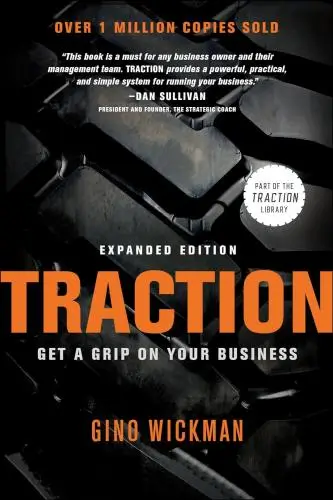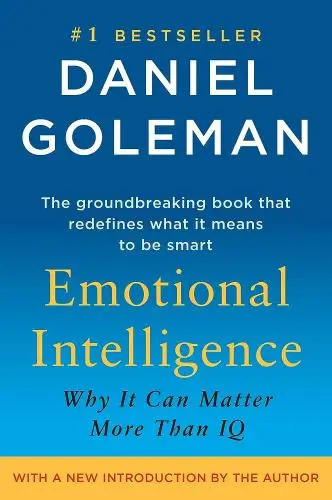
Emotional Intelligence
Why It Can Matter More Than IQ
What is Emotional Intelligence about?
Emotional Intelligence is a groundbreaking book that explores how our ability to understand and manage emotions can impact every aspect of our lives. Goleman argues that EQ is just as important as IQ for success, and provides practical strategies for developing emotional intelligence. Through engaging stories and compelling research, this book will change the way you think about emotions and their role in personal and professional success. If you want to improve your relationships, leadership skills, and overall well-being, this is a must-read.
About the Author
Daniel Goleman is an American psychologist and author best known for popularizing the concept of emotional intelligence (EI) with his book "Emotional Intelligence." His work focuses on leadership, education, and human behavior, emphasizing the importance of emotional skills in personal and professional success. Goleman's writings combine psychological research with practical insights.
16 Key Ideas of Emotional Intelligence
- What Are Emotions For?
- Anatomy of an Emotional Hijacking
- When Smart Is Dumb
- Know Thyself
- Passion's Slaves
- The Master Aptitude
- The Roots of Empathy
- The Social Arts
- Intimate Enemies
- Managing with Heart
- Mind and Medicine
- The Family Crucible
- Trauma and Emotional Relearning
- Temperament Is Not Destiny
- The Cost of Emotional Illiteracy
- Schooling the Emotions
Emotions are not just random feelings; they serve as a sophisticated guidance system that has been fine-tuned by evolution. They act as messengers, signaling to us how we should react in various situations. For example, when faced with danger, fear kicks in and prepares our body to either fight or flee—this is an evolutionary mechanism designed for survival.
The profound love a parent feels for their child can lead them to make sacrifices that defy logic but ensure the propagation of their genes. This illustrates how emotions can drive behavior towards fulfilling evolutionary imperatives.
The Evolutionary Imprint on Our Nerves
Over millions of years, humans have developed emotional responses that are hardwired into our nervous systems. These innate tendencies help us navigate life's recurring challenges: from facing threats to pursuing goals and forming deep bonds with others.
Despite societal efforts to regulate emotional extremes through laws and moral codes, these primal instincts remain deeply embedded within us, continuing to shape our actions and reactions.
Biological Signatures: How Emotions Prepare Us
Each emotion carries its own biological signature which primes the body for certain behaviors:
- Anger fuels aggression.
- Fear primes escape or defense mechanisms.
- Love encourages relaxation and cooperation.
- Sadness facilitates introspection after loss, paving the way for new beginnings.
These signatures reveal emotions as more than mere feelings—they're impulses urging us toward action tailored by nature's wisdom.
The Interplay Between Rationality and Emotionality
Humans possess two minds—one rational mind capable of thoughtful analysis and one emotional mind driven by powerful impulses rooted in primitive brain functions like smell detection. While both minds work together harmoniously most times, intense emotions can tip this balance dramatically influencing decision-making processes during emergencies where immediate response is crucial.
Cultural norms also play a significant role in shaping how we express—or suppress—our emotions publicly or privately despite universal biological underpinnings shared across humanity due to common evolutionary history.
Tactics
- Recognize Emotional Impulses: Acknowledge that all emotions serve as impulses designed by evolution prompting action when faced with various stimuli.
- Develop Emotional Intelligence: Cultivate awareness about personal emotional reactions along with understanding others' expressions leading to better social interactions.
- Balance Rationality & Emotionality: Strive towards maintaining equilibrium between logical reasoning and impulsive feelings especially during decision-making processes.
- Cultural Sensitivity Towards Expressions: Recognize cultural variations in displaying or withholding emotions thereby fostering empathy across diverse societal contexts.
- Mindful Response During Emergencies: Practice mindfulness techniques enabling thoughtful consideration even amidst intense emotional surges particularly during crisis situations.
Key Examples/Data
Chauncey Family's Heroic Sacrifice: Gary and Mary Jane Chauncey, parents to an eleven-year-old daughter with cerebral palsy, perished in an Amtrak train crash after ensuring their daughter's survival by pushing her through a window to rescuers before the car sank beneath the water. This act of parental heroism exemplifies the potency of altruistic love and the role of emotions in human life, showcasing how emotions, particularly love, guide individuals in making crucial decisions, even at the expense of personal survival.
Tragic Shooting of Matilda Crabtree: Fourteen-year-old Matilda Crabtree was accidentally shot by her father, Bobby Crabtree, who mistook her for an intruder in their home. This tragic incident illustrates how evolutionary emotional legacies, such as fear and the impulse to protect family from danger, can lead to devastating consequences in modern society, where the slow pace of evolution cannot keep up with new realities and social constraints.
Snowstorm Caution in Colorado: While driving through a snowstorm in Colorado, the author experienced anxiety and fear, prompting them to pull over. This cautionary fear potentially saved their life, as they later encountered a collision just a few hundred yards down the road. This example demonstrates how emotions, such as fear, serve as impulses to act, guiding individuals to make life-saving decisions in critical situations.
Biological Signatures of Emotions: Each emotion, such as anger, fear, happiness, love, surprise, disgust, and sadness, is associated with distinct biological responses in the body, preparing individuals for specific actions or reactions. For instance, anger increases blood flow to the hands, facilitating weapon grasping or striking, while fear directs blood to the large skeletal muscles, aiding in fleeing and freezing. These biological signatures highlight the unique roles of emotions in guiding behavior and responses to various stimuli.
Divorce and Emotional Conflict: A friend's experience of divorce, where she claimed to be happy and independent but momentarily displayed teary eyes, exemplifies the interplay between the emotional and rational minds. This emotional conflict illustrates how the two minds, one that feels and one that thinks, interact to construct mental life, with emotions often influencing and sometimes contradicting rational thoughts.
Quotes
- "Without doubt such incidents of parental sacrifice for their progeny have been repeated countless times in human history and prehistory, and countless more in the larger course of evolution of our species."
- "A view of human nature that ignores the power of emotions is sadly shortsighted."
- "All emotions are, in essence, impulses to act, the instant plans for handling life that evolution has instilled in us."
- "In a very real sense we have two minds, one that thinks and one that feels."
- "The emotional/rational dichotomy approximates the folk distinction between 'heart' and 'head'; knowing something is right 'in your heart' is a different order of conviction—somehow a deeper kind of certainty—than thinking so with your rational mind."
- "Because so many of the brain's higher centers sprouted from or extended the scope of the limbic area, the emotional brain plays a crucial role in neural architecture."
Emotional Intelligence Summary: Common Questions
Experience Personalized Book Summaries, Today!
Discover a new way to gain knowledge, and save time.
Sign up for our 7-day trial now.
No Credit Card Needed

Similar Books
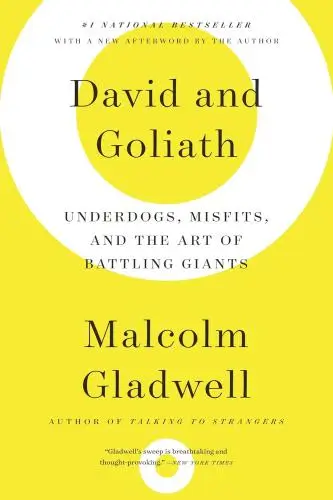
David and Goliath
Malcolm Gladwell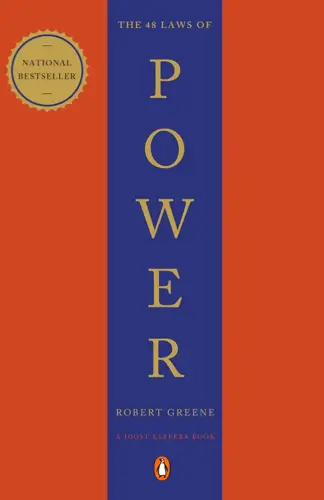
The 48 Laws of Power
Robert Greene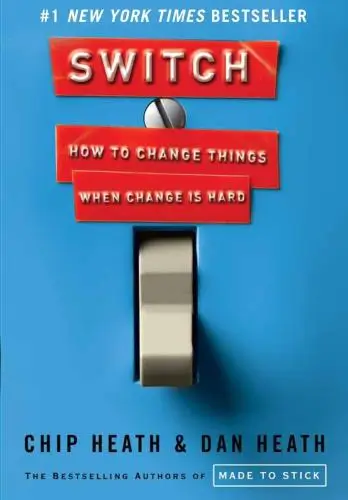
Switch
Chip Heath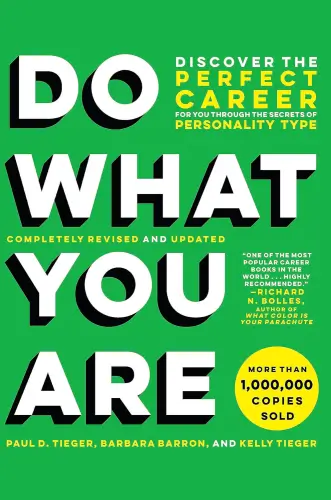
Do What You Are
Paul D. Tieger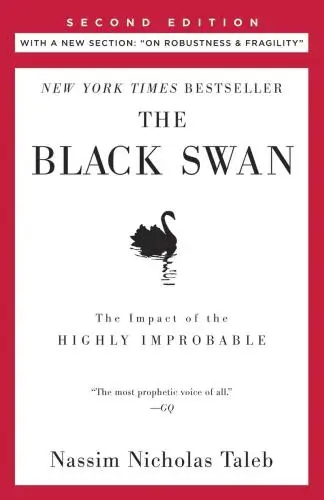
The Black Swan
Nassim Nicholas Taleb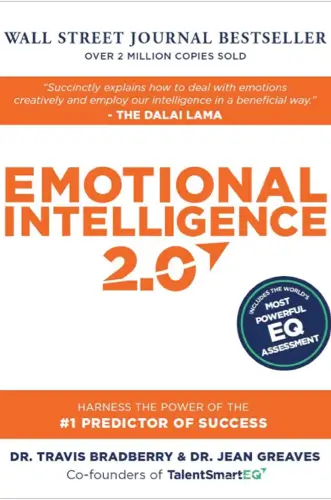
Emotional Intelligence 2.0
Travis Bradberry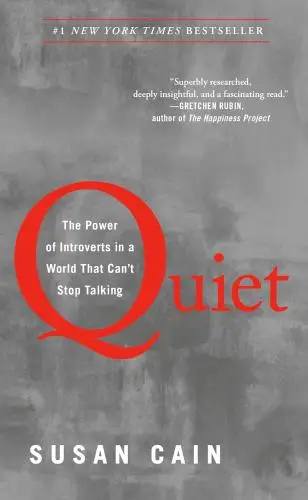
Quiet
Susan Cain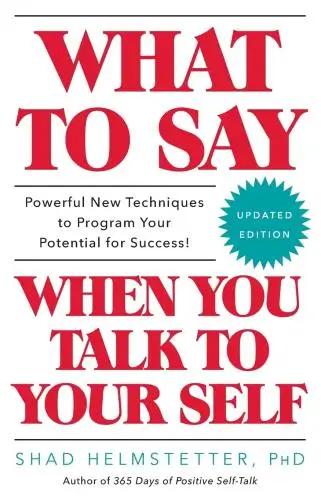
What to Say When You Talk to Yourself
Shad Helmstetter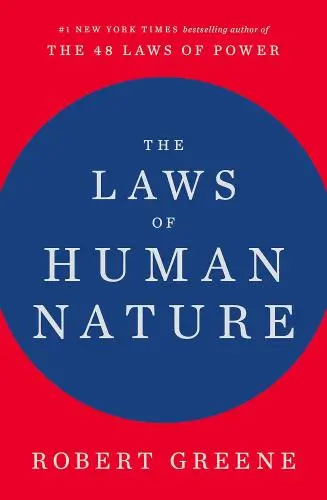
The Laws of Human Nature
Robert Greene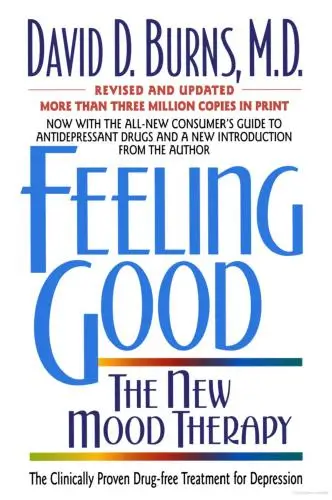
Feeling Good
David D. Burns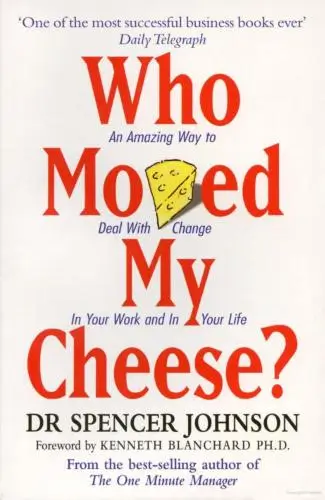
Who Moved My Cheese?
Spencer Johnson
12 Rules for Life
Jordan B. PetersonTrending Summaries

Peak
Anders Ericsson
Never Split the Difference
Chris Voss
Smart Brevity
Jim VandeHei
The Psychology of Money
Morgan Housel
The First 90 Days
Michael D. Watkins
Atomic Habits
James Clear
Thinking, Fast and Slow
Daniel Kahneman
The Body Keeps the Score
Bessel van der Kolk M.D.
The Power of Regret
Daniel H. Pink
The Compound Effect
Darren Hardy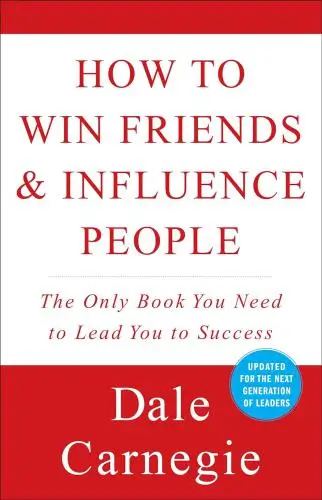
How to Win Friends & Influence People
Dale Carnegie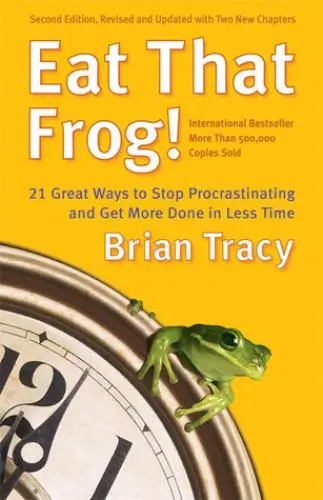
Eat That Frog!
Brian Tracy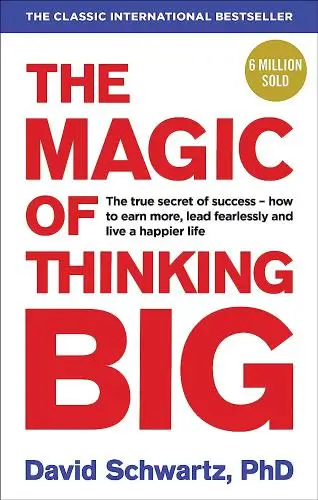
The Magic of Thinking Big
David J. Schwartz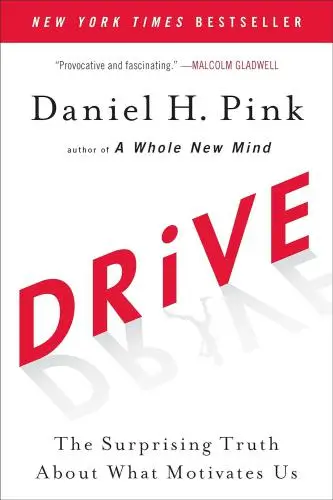
Drive
Daniel H. Pink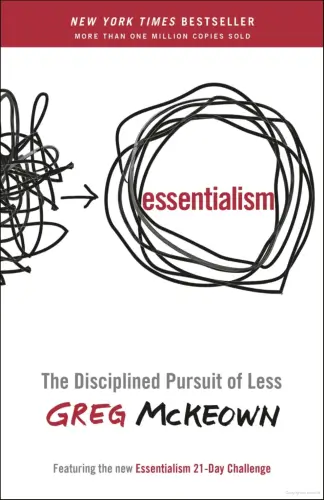
Essentialism
Greg McKeownNew Books

The Millionaire Fastlane
MJ DeMarco
Losing My Virginity
Richard Branson
Venture Deals
Brad Feld
48 Days to the Work You Love
Dan Miller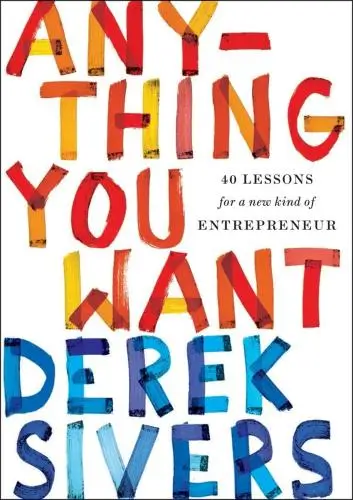
Anything You Want
Derek Sivers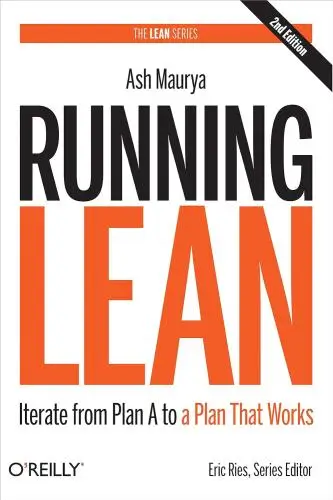
Running Lean
Ash Maurya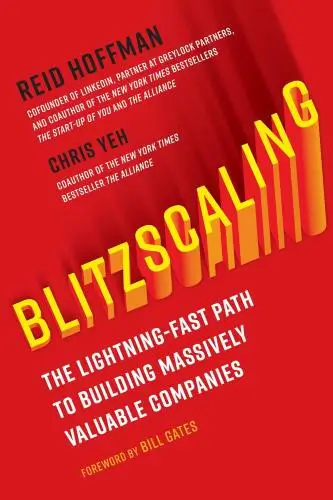
Blitzscaling
Reid Hoffman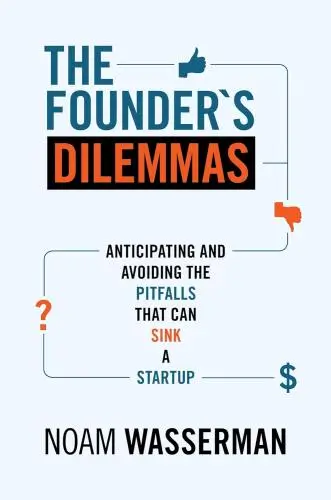
The Founder's Dilemmas
Noam Wasserman
Founders at Work
Jessica Livingston
The Startup Owner's Manual
Steve Blank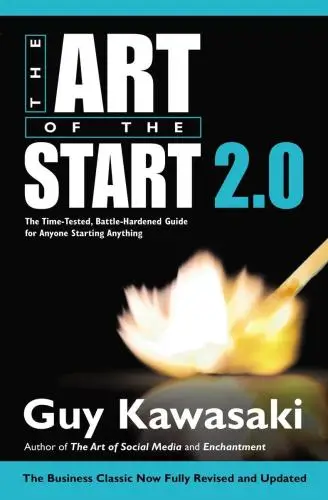
The Art of the Start 2.0
Guy Kawasaki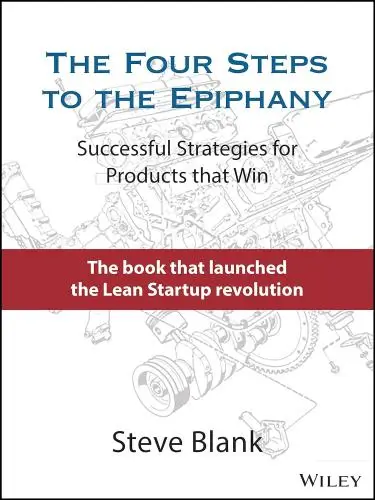
The Four Steps to the Epiphany
Steve Blank
Flash Boys
Michael Lewis
Crush It!
Gary Vaynerchuk